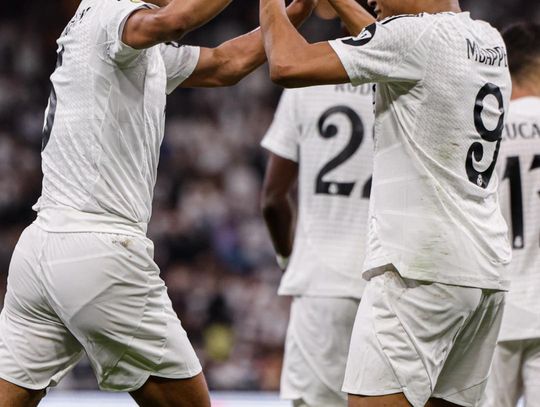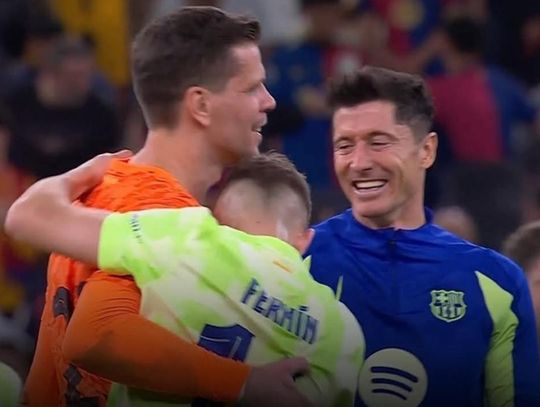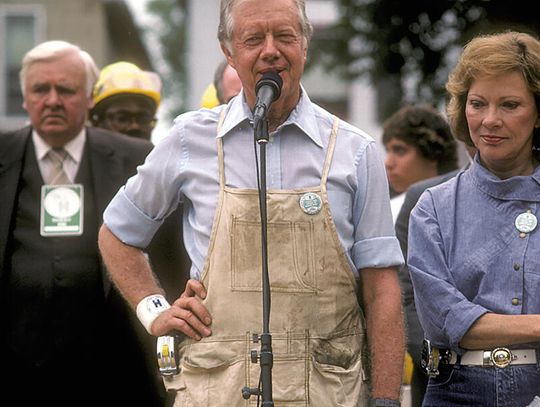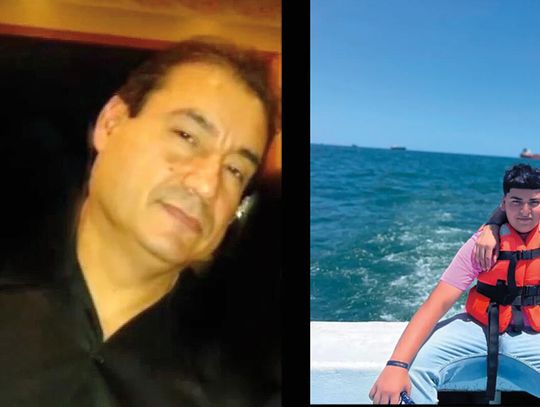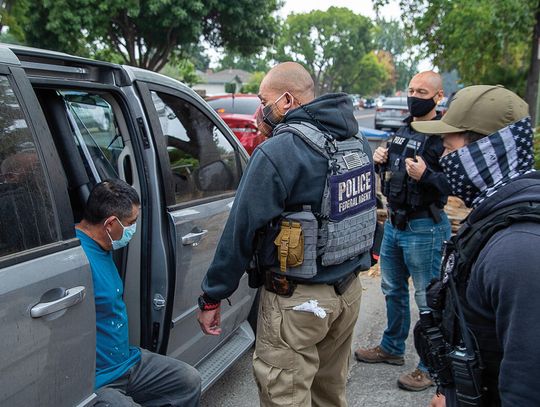Kiedy czytasz o historii w podręcznikach i książkach historycznych, wszystko wydaje się przejrzyste. To liczby sprawiają, że odbierasz historię w ten sposób. Bo liczby, jak to się często mówi, nie kłamią. Dane wydarzenie zaczyna się określonego dnia i kończy też z jakąś ściśle określoną datą. Wyraźnie widać początek i koniec. Wszystko wydaje się proste i jasne, ale w rzeczywistości wcale takie nie jest.
Podręczniki i książki historyczne podają na przykład, że druga wojna światowa rozpoczęła się 1 września 1939 roku, kiedy Niemcy z zachodu dokonały inwazji na Polskę. Te same książki mówią, że wojna zakończyła się blisko sześć lat później, 8 maja 1945 roku.
Mój ojciec, Jan Guzlowski, nie był studentem historii. Nigdy nie odebrał formalnej edukacji, nigdy nie chodził do szkoły i nie był w stanie przeczytać wiele więcej niż książeczkę do modlitwy. Ale znał historię. Historia naznaczyła jego życie. Ojciec miał zaledwie 19 lat i pracował w gospodarstwie swojego wuja w zachodniej Polsce, kiedy Niemcy napadły na Polskę i cały jego świat przewróciły do góry nogami. Można powiedzieć, że mój ojciec uczył się historii na własnej skórze. Został aresztowany podczas łapanki w 1940 roku i wywieziony do Niemiec. Jak miliony innych Polaków, kolejne lata spędził w niemieckich obozach koncentracyjnych i obozach niewolniczej pracy.
Dla mojego ojca wojna nie zakończyła się, kiedy obóz, w którym przebywał, został wyzwolony pod koniec marca 1945 roku. Nie skończyła się też w Dzień Zwycięstwa, 8 maja 1945 roku, ani kiedy wraz z rodziną przybył do Ameryki jako przesiedleniec i uchodźca wojenny, w czerwcu 1951 roku.
Wojna pozostała w nim na stałe, tak jak w mojej matce, Tekli Guzlowskiej – kobiecie, która spędziła trzy lata w niemieckim obozie pracy, a wcześniej była świadkiem, jak Niemcy gwałcą i mordują inne kobiety z jej rodziny. Trauma, która pozostała po tej scenie, nigdy jej nie opuściła. Kiedy byłem dzieckiem i kiedy dorastałem, widziałem tę tragedię w jej oczach i obserwowałem, jak stara się jej nie poddać.
Moi rodzice każdego dnia nieśli w sobie ból i koszmar wojny. W 1997 roku, kiedy mój ojciec umierał w hospicjum, zdarzało się, że był przekonany, że lekarze i pielęgniarki, które chciały go uspokoić i przynieść ukojenie, byli niemieckimi strażnikami, którzy bili go w obozie koncentracyjnym. Zdarzały się momenty, kiedy nie był w stanie rozpoznać mnie, mojej matki i mojej siostry. Patrzył na nas z przerażeniem przekonany, że przyszliśmy, aby go torturować.
W 2005 roku, u schyłku życia mojej matki, powiedziałem jej, że zamierzam zorganizować spotkanie literackie, na którym będę czytał wiersze o niej, o moim ojcu i ich wojennych przeżyciach. Zapytałem, czy jest coś, co chciałaby, abym przekazał publiczności.
„Tak” – powiedziała. „Powiedz im, że nie byliśmy jedyni”.
Moi rodzice wiedzieli, że wojna na zawsze pozostała z nimi, codziennie udzielając im trudnych lekcji, ucząc ich, jak przeżywać żałobę i ból, jak być cierpliwym, jak żyć bez nadziei i bez chleba, jak przetrwać to wszystko, co w normalnych okolicznościach zabiłoby każdego.
Wojna nauczyła ich, że wojna nie ma początku i nigdy się nie kończy.
(tłum. gd)
September 1, 1939: The Day World War II Began
When you read about history in the history books, it’s all so clear. The numbers make it seem that way. Numbers, people say, don’t lie. A thing begins on a certain date, and it ends on another particular date. You see the beginning of a thing, and you see its end. It all seems neat and clean, but it isn’t really.
The history books, for instance, tell us that World War II began on September 1, 1939 when the Germans invaded Poland from the west, and the same books tell us that the war in Europe ended almost six years later on V-E day, May 8, 1945.
My father Jan Guzlowski was not a student of history. He never had any kind of formal education, never went to school, never could read much beyond what he could read out of a prayer book, but he knew history. He had lived through history. He was only 19, working on his uncle’s farm in western Poland, when the Germans invaded and turned his whole world upside down. I guess you can say my father learned history from the ground up. He was captured by the Germans in a roundup in 1940 and sent to Germany. Like a couple of million other Poles, he spent the next five years at hard labor in concentration and slave labor camps there.
But for him, the war didn’t end when his camp was liberated sometime at the end of March 1945, and it didn’t end on Victory-in-Europe Day, May 8, 1945, and it certainly didn’t end when my family finally came to America as refugees, Displaced Persons, in June 1951.
The war was always with him and with my mother Tekla Guzlowski, a woman who spent three years in the slave labor camps in Germany and before that had seen the other women in her family raped and murdered by the Germans. The trauma of what she had seen never left her. When I was growing up, I could see it in her eyes and the way she held herself together.
My parents carried with them the pain of war and its nightmares every day of their lives.
In 1997, fifty-two years after the war ended, when my father was dying in a hospice, there were times when he was sure that the doctors and the nurses trying to comfort him were the German guards who beat him when he was a prisoner in the concentration camp. There were also times when he couldn’t recognize me and my mother and sister. He looked at us and was frightened. He thought we were there to torture him also.
In 2005, toward the end of my mother’s life, I told her that I was going to be giving a poetry reading and that I would be reading poems about her and my father and their experiences in the war. I asked if there was something she wanted me to say to the audience.
“Yes,” she said, “Tell them we weren’t the only ones.”
My parents knew that the war had always been with them, teaching them the hard lessons, teaching them how to suffer grief and pain, how to be patient, how to live without hope or bread, how to survive what would kill a person in the normal course of life.
The war taught them that war has no beginning and no end.
John Guzlowski
amerykański pisarz i poeta polskiego pochodzenia. Publikował w wielu pismach literackich, zarówno w USA, jak i za granicą, m.in. w „Writer’s Almanac”, „Akcent”, „Ontario Review” i „North American Review”. Jego wiersze i eseje opisujące przeżycia jego rodziców – robotników przymusowych w nazistowskich Niemczech oraz uchodźców wojennych, którzy emigrowali do Chicago – ukazały się we wspomnieniowym tomie pt. „Echoes of Tattered Tongues”. W 2017 roku książka ta zdobyła nagrodę poetycką im. Benjamina Franklina oraz nagrodę literacką Erica Hoffera, za najbardziej prowokującą do myślenia książkę roku. Jest również autorem dwóch powieści kryminalnych o detektywie Hanku Purcellu oraz powieści wojennej pt. „Road of Bones”. John Guzlowski jest emerytowanym profesorem Eastern Illinois University.
—
John Guzlowski's writing has been featured in Garrison Keillor’s Writer’s Almanac, Akcent, Ontario Review, North American Review, and other journals here and abroad. His poems and personal essays about his Polish parents’ experiences as slave laborers in Nazi Germany and refugees in Chicago appear in his memoir Echoes of Tattered Tongues. Echoes received the 2017 Benjamin Franklin Poetry Award and the Eric Hoffer Foundation's Montaigne Award for most thought-provoking book of the year. He is also the author of two Hank Purcell mysteries and the war novel Road of Bones. Guzlowski is a Professor Emeritus at Eastern Illinois University.
fot.Adam Warzawa/Epa/REX/Shutterstock



